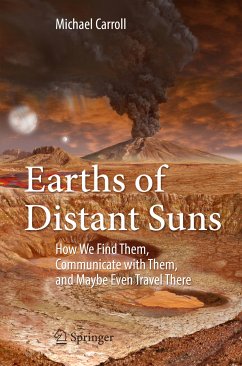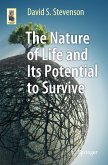All of us are mesmerized by the possibility of other Earth-like worlds out there. Author Michael Carroll asks the tough questions of what the expected gain is from identifying these Earth analogs spread across the Universe and the reasons for studying them. Potentially, they could teach us about our own climate and Solar System. Also explored are the more remote options of communication between or even travel to these distant yet perhaps not so dissimilar worlds.
Dieser Download kann aus rechtlichen Gründen nur mit Rechnungsadresse in A, B, BG, CY, CZ, D, DK, EW, E, FIN, F, GR, HR, H, IRL, I, LT, L, LR, M, NL, PL, P, R, S, SLO, SK ausgeliefert werden.









